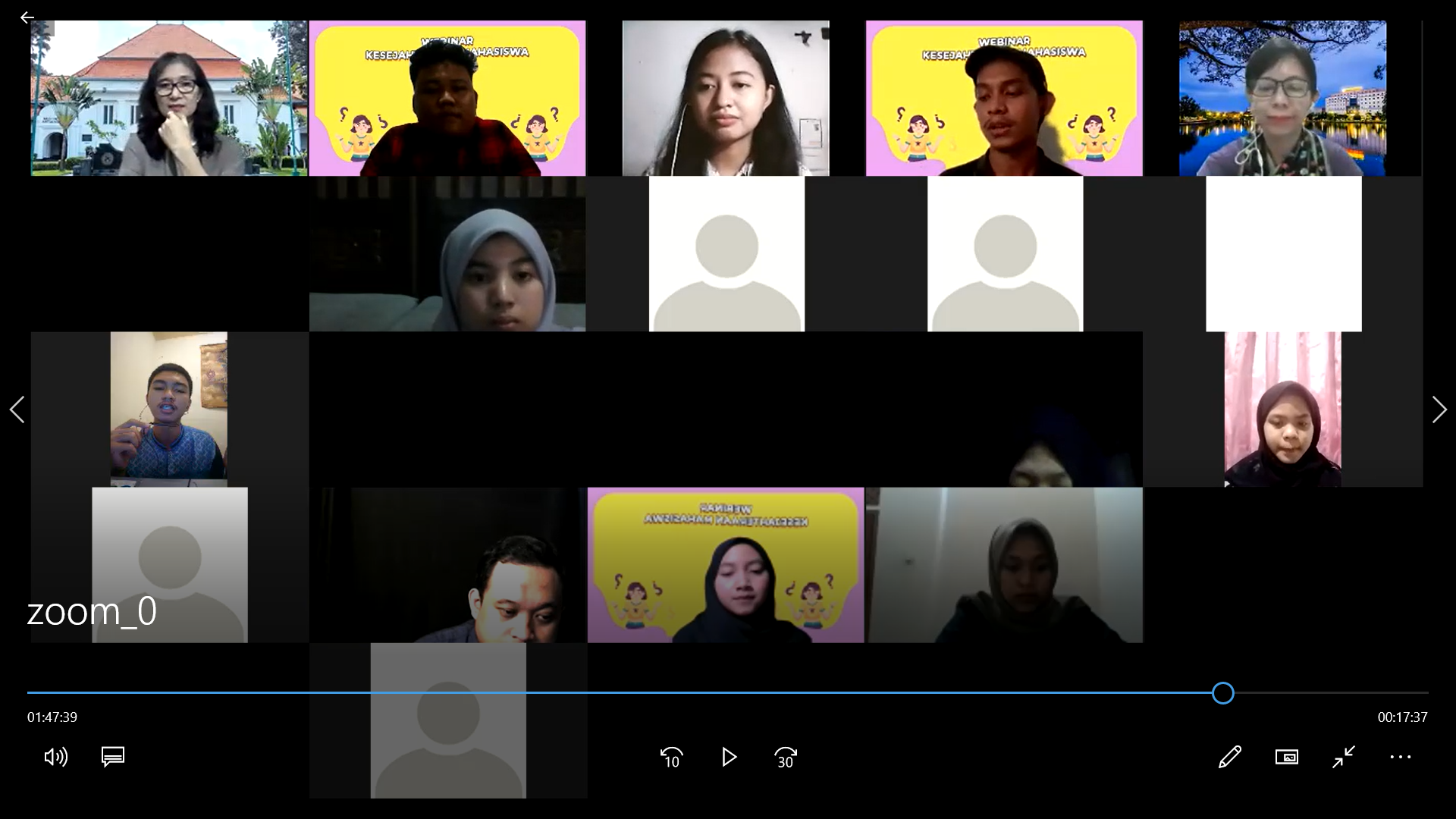UNAIR NEWS – Student Executive Board of Faculty of Humanities Universitas Airlangga (BEM FIB UNAIR) held a student welfare webinar on Friday, May 7, 2021 via Zoom. The webinar was titled “Showing Concern to Students’ Psychological Conditions to Maximize the Distanced Learning Process”.
Difficulties during a pandemic and distanced learning sometimes force us to always think positively, in order to avoid situations that get worse. However, positive thinking “compulsion” does not always have a good impact.
As explained by Dr. Margarita M. Maramis, dr. SpKJ (K), FISCM, positive thoughts sometimes become toxic. “Anything that becomes toxic will poison our mental health,” she said. This is called toxic positivity, or a pressing force.
Toxic positivity is a great way to live your life, so you refuse to accept anything that can trigger negative emotions. It is considered toxic when we exaggerate the need to be happy and think positively every day all the time thus denying negative emotions. “Even though it sounds fun, the concept of positive thinking is not as good as it is described,” she said.
This condition (toxic positivity, ed) can affect self and others through speech. Examples of toxic statement are ‘whatever happens, you can’t be sad!’ or ‘you can’t cry, you are a strong kid!’ and many more.
The imposition of positive words keeps negative emotions hidden. “Finally, we don’t care about other people’s distress, basically we support it with positive words regardless of the situation,” added dr. Margarita.
dr. Margarita said that toxic positivity causes people to be introvert because they are lazy to tell stories, so they do not have a place to express their feelings. In more severe situations, this condition can make a person commit suicide because they feel that there is no one to support them.
“We recognize and acknowledge that various complex emotions can happen to us simultaneously and confuse us. If it is not responded to by supportive friends, it will be uncomfortable because negative feelings persist. So we need to listen and care and understand, that’s the point,” explained dr. Margarita.
Meanwhile, to overcome psychological problems for academicians, UNAIR has provided a help center which is under the Directorate of Student Affairs UNAIR. As one form of dissemination for the existence of a Help Center, Prof. Myrtati Dyah Artaria, Dra., MA., Ph.D as the first head of UNAIR Help Center also attended the webinar. “The focus is formally on students, but practically it is for all,” said Prof. Myrtati.
In its activities, UNAIR Help Center team will conduct counseling and mentoring. They have several psychologists and psychiatrists, including dr. Margarita.
If you want to consult with the help center team, UNAIR academics can gain access through various social media: @Help_CenterUnair (Instagram), 081615507016 (WhatsApp), helpcenter.airlangga@gmail.com (e-mail), @HaCe Universitas Airlangga (facebook), and @ HelpCenterUnair (twitter). “All of this (service, ed) is free,” concluded Prof. Myrtati.
Author: Fauzia Gadis Widyanti
Editor: Khefti Al Mawalia





